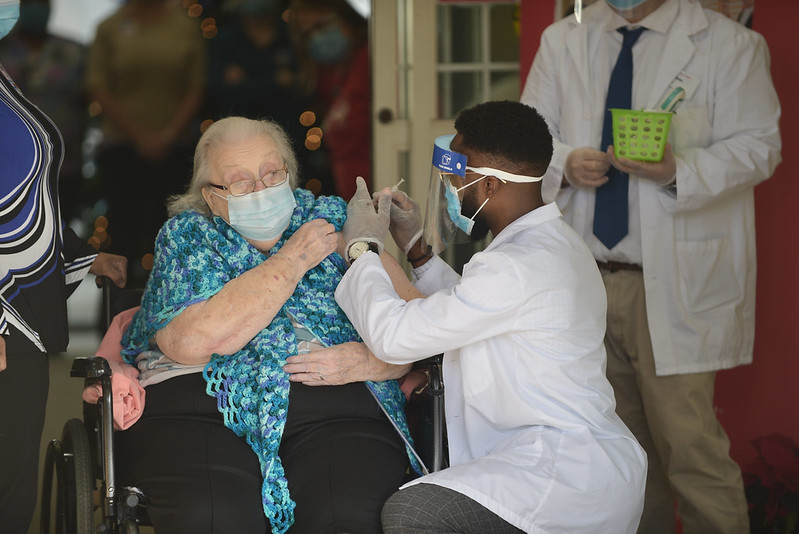

Individuals with a weakened or compromised immune system are more likely to get severely ill from COVID-19, including an increased risk of hospitalization and death. CDC guidance can be found at the following links: If you travel, please heed all CDC, federal, State and local guidance regarding travel. You are also advised to seek medical attention immediately, especially if you have a chronic health condition or are immunocompromised. If you test positive, report your results at. If, at any time while you travel, you develop symptoms of COVID-19 or begin to feel unwell, please stay away from others and get tested as soon as possible. When traveling internationally, check the COVID-19 Travel Recommendations by Destination and follow these recommendations to protect yourself and others while traveling. If traveling to an area with high or medium COVID-19 Community Levels, and you are, live with, or are visiting someone with a weakened immune system or at increased risk for severe disease, plan to take steps to prevent getting sick. When traveling in the US, check the current COVID-19 Community Level at your destination. If you are immunocompromised, do NOT travel without first seeking advice from your personal physician. Do NOT travel if you were exposed to COVID-19, you are sick, you test positive for COVID-19, you are waiting for results of a COVID-19 test or had close contact with a person with COVID-19 and are recommended to quarantine. If you are unvaccinated and travel, your risk of contracting and getting seriously sick from the virus is higher compared to individuals who are up-to-date with their vaccine, and it is critically important to assess your health risk with your healthcare provider and to follow CDC recommendations prior to and during travel. The CDC recommends making sure you are up to date with your COVID-19 vaccines before travel and avoiding travel to certain high risk destinations. We are in an ongoing COVID-19 global pandemic. Students, faculty and staff do not need to be tested regularly. For exempt regular and contingent II staff and faculty, employees can use the notes section on their timesheet to note time away for vaccination.For non-exempt staff, contingent 1 staff, and hourly faculty, the time in and out should be recorded on the timesheet enter "COVID-19 vaccination" or "Flu vaccination" in the notes section of the timesheet.If you want to have the flu and COVID-19 vaccinations on different days, release time may be taken on two separate days, for no more than a cumulative total of one hour (60 minutes).

To ensure minimal disruption to work, give your supervisor as much advance notice as possible of your appointment date and time.Release time is only for COVID-19 and flu vaccinations at the University Health Center.Details for Release Time for On-Campus Vaccines:.If you have an adverse reaction following vaccination, advise your supervisor and use accrued sick leave in accordance with established policies.You should return to work once you have received the vaccine dose, unless your work shift is over or you are on approved leave following your appointment.Release Time is available for UMD employees to get COVID-19 vaccines (additional doses and boosters) and to get the flu vaccine on campus at the University Health Center.


 0 kommentar(er)
0 kommentar(er)
